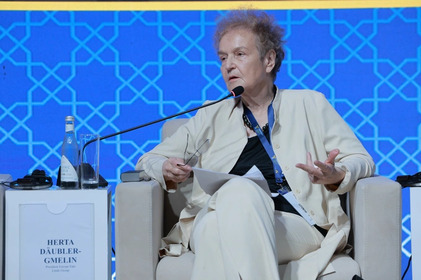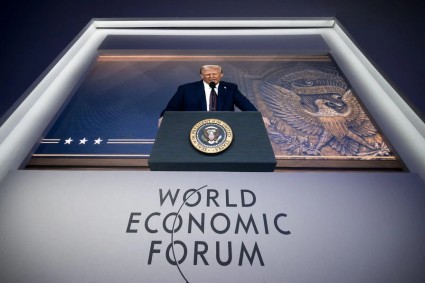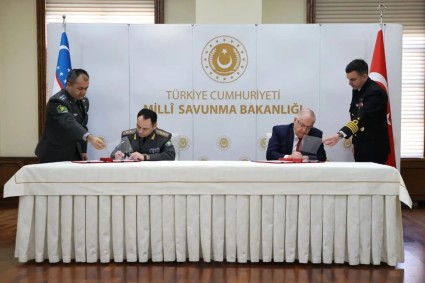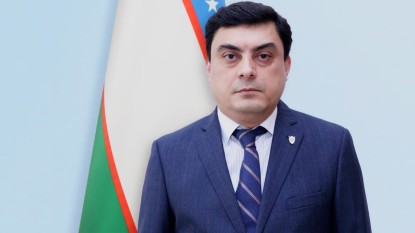Tashkent International Commercial Court (TICC) will open in Uzbekistan to protect the rights of investors. It will be part of the commercial dispute resolution system along with the existing Tashkent International Arbitration Center and will become an important element in modernizing the national judicial system and attracting investors. The purpose of the court and its benefits for Uzbekistan were discussed at the IV Tashkent International Investment Forum on Tuesday.
“This court is attractive because it will apply modern international standards and implement relevant methods of dispute resolution. This is important because it will ensure transparency, impartiality and predictability - qualities that are essential for the trust of international and local investors,” said Herta Daubler-Gmelin, a former German Minister of Justice and an expert in international arbitration.
According to her, the court can become a model for national courts, increasing trust in the judicial system as a whole. It is especially important that the court follows not only national law, but also international norms, such as the standards of the United Nations Commission on International Trade Law (UNCITRAL) and the International Chamber of Commerce. Commercial courts in different countries — from Germany to Singapore — form a common network and help harmonize procedures, Daubler-Gmelin added.
According to her, despite the growing competition between international commercial courts, TICC is able to occupy its niche and offer Uzbekistan an advantage as an investment platform. This will not only strengthen the rule of law, but also contribute to the development of the economy.
Professor of International Investment Law Nasser Mohsin Al-Adba spoke about the experience of the UAE and Qatar in creating international commercial courts. According to him, one of the key features of international commercial courts in the Middle East is their autonomous status. Such courts are not directly connected with governments: government bodies do not influence the appointment of judges, their remuneration and working conditions. Decisions on the composition of the court and its internal policy are made by an independent council. This reduces the risks of external pressure and strengthens investor confidence.
“Why do we need international courts in this country? Because they allow for the creation of an autonomous system with the participation of foreign judges and the possibility of admitting foreign lawyers,” he explained.
According to him, thanks to international experience, attorneys in such courts use practices that are unusual for countries with a continental legal system, such as cross-examination, document disclosure, and oral hearings. These approaches make the proceedings more transparent and adversarial, and the involvement of local specialists contributes to the further dissemination of these practices in national judicial practice.
Islambek Rustambekov, Rector of the Tashkent State Law University, agrees with this. In his opinion, TICC can change the approach to training lawyers in Uzbekistan and influence the development of the entire legal system of the country. The new court will allow cases to be considered in English using foreign law, which is not available in the current system. Currently, the economic courts of Uzbekistan are overloaded, work only in Uzbek and Russian, and often do not apply foreign law, as they do not have the experience.
At the same time, foreign lawyers cannot represent clients in regular courts, since Uzbek law requires mandatory citizenship and a local license. In this sense, TICC will become a platform for new practices, open both to foreign lawyers and to the consideration of cross-border disputes according to international standards.
“TICC can become a legal laboratory that will inspire the renewal of the entire judicial system of Uzbekistan. We need to train a new generation of lawyers who are fluent in English, familiar with case law and able to work in an international environment,” Islambek Rustambekov emphasized.
Director of the Tashkent International Arbitration Center (TIAC) вАЛвАЛDiana Baizakova underscored that TICC and the center will not compete with each other, but will work in tandem. This approach enhances the trust of foreign companies, since it provides them with a “menu of options” - the ability to choose based on the nature of the dispute, the preferred language of the proceedings and the applicable law.
“The creation of TICC is an expansion of available mechanisms. "We are talking about a specialized court where the principles of English common law and the English language of legal proceedings are applied. This is important for international investors. The court will be able to support arbitration, for example, issue interim measures or recognize arbitration awards," says Baizakova.
She added that a similar model is successfully functioning in the UAE: in 2024, the independent DIFC Court in Dubai considered 1,056 cases worth more than $2 billion, of which $1.8 billion concerned arbitration. This confirms that a specialized English-language court can effectively support the international arbitration system.
In Uzbekistan, TIAC is already showing growing interest from foreign companies: in 2024, a third of cases involved foreign participants on both sides. Diana Baizakova cited as examples the proceedings involving the South Korean company Techcross Water & Energy and the American investment fund. In the future, TICC will be able to quickly support such cases - for example, block assets or recognize arbitration decisions, acting as part of the country's flexible and modern legal infrastructure.
Deputy Business Ombudsperson Jamshid Urunov noted that businesses should have the right to choose where to go when disputes arise, and expressed confidence that this contributes to greater fairness and responsibility in society.
"In our work, it is important to identify systemic problems and scale the solution not only to the regions, but also to the districts," added Dzhamshid Urunov, noting that studying international experience will help improve local practice.
Marie-Anna Birken noted that by 2050, international and national courts can be fully integrated, without dividing them into foreign and local. As an example of successful integration, she cited the courts in the UAE and Kazakhstan, where cases are exchanged between international and national instances. Such cooperation, in her opinion, is critically important for the sustainable development of the judicial system.














